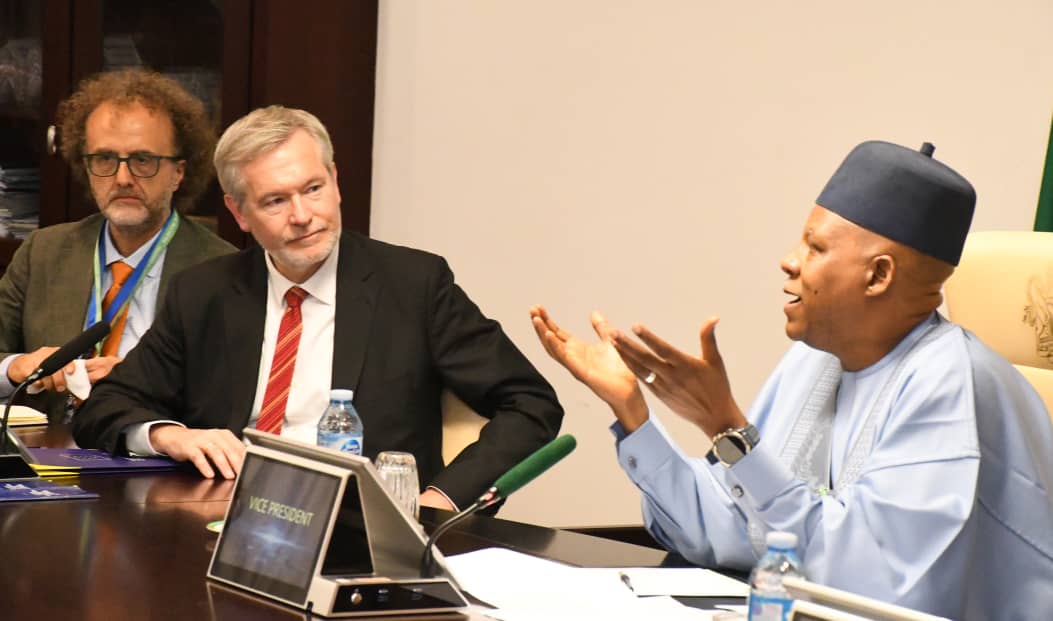The Centre for Sustainable Development (CSD) at the Federal University of Petroleum Resources (FUPRE) has declared its readiness to take a leading role in ending the longstanding issues of crude oil theft, pipeline vandalism, and illegal mining in Nigeria.
Naija News understands that these activities have drained the nation of over ₦4.3 trillion through more than 7,000 cases of pipeline destruction over the past five years, and countless untracked mineral exploitation.
In a press release issued by Head of Media and Public Enlightenment at FUPRE-CSD, Benjamin Atu, the centre highlighted its capacity to tackle the persistent financial leakages in the oil and gas sector, calling for government collaboration to enable optimal performance.
“FUPRE-CSD has the solution to the financial leakages in the oil and gas sector of the economy, which have slowed the nation’s development. If FUPRE is elevated to perform optimally, the Centre for Sustainable Development will be able to assist the government in combating oil theft, which has crippled the nation financially and increased the cost of pipeline maintenance, replacement, and other avoidable costs, forcing many multinational companies to close while others relocate,” the statement read.
The centre stated that it is equipped with both the knowledge and manpower to carry out widespread educational outreach and engagement across local communities—targeting the root causes of oil theft, pipeline destruction, and unauthorized mining.
FUPRE emphasised the need for political commitment, strategic partnerships, and integration of the Sustainable Development Goals (SDGs) as key markers of national growth.
The communique also identified the underlying drivers of these illicit activities, including poverty, inadequate infrastructure, public dissatisfaction with both oil companies and government policies, weak law enforcement, poor border cooperation, and community collusion with vandals.
Nevertheless, the centre stated that it remains confident that with enhanced synergy among stakeholders—government institutions, security agencies, civil society, religious and professional groups, traditional rulers, and community organisations—it can lead an unprecedented initiative against oil-related crimes.
FUPRE-CSD lamented the harsh economic, environmental, and social impacts that oil theft, vandalism, and illegal mining have had on Nigeria. It stressed that, “Our duty as a center is not to lament the issue, but to help bring the nation out of the crude oil theft.”
The Centre acknowledged the current administration’s initiatives to address the problem, crediting efforts led by the Office of the National Security Adviser, Nigerian National Petroleum Company Limited (NNPCL), Nigerian Content Monitoring Board, Niger Delta Development Commission (NDDC), the armed forces, security agencies, and private sector security operators like Tantita Security Services Company Limited.
They also recognised the roles of other bodies including NOSDRA, NEITI, and the Senate Committee on Oil Theft.
Despite these efforts, FUPRE-CSD recommended a shift towards long-term solutions: formalising small-scale mining through cooperatives, upgrading technical facilities, and introducing modular refineries as lawful alternatives for local operators.
The centre further advised the adoption of advanced monitoring tools, such as drones, following the example of Saudi Arabia’s oil surveillance systems, which it intends to study and adapt for Nigerian use through strategic partnerships.

 5 hours ago
1
5 hours ago
1















 English (US) ·
English (US) ·